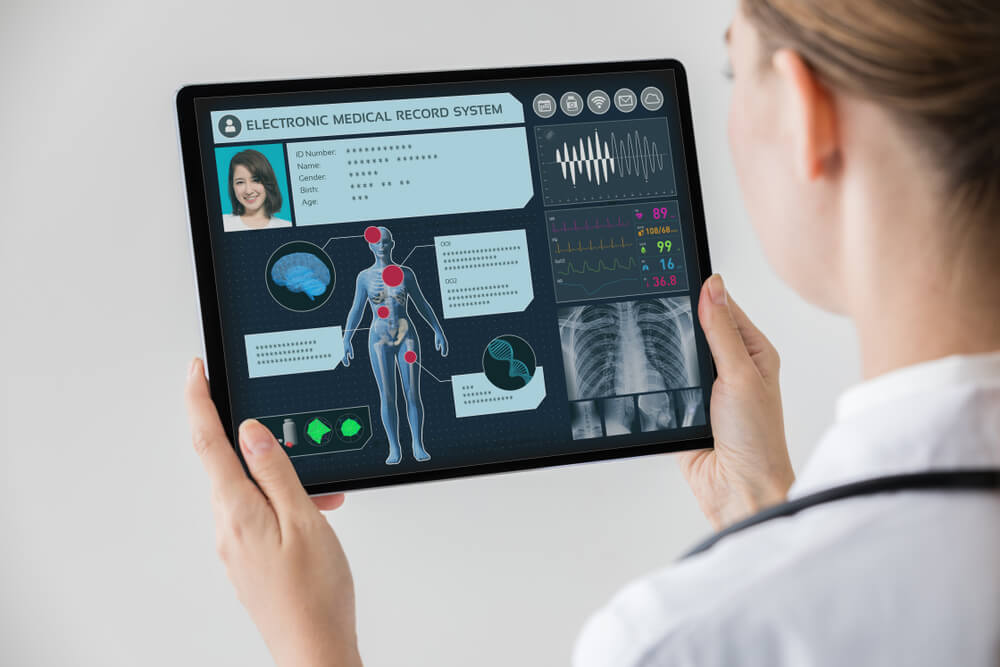Medical Records in Court Proceedings: How They’re Used
When a civil or criminal trial touches on an injury or other health concern, the facts a legal team needs to prove to a judge......
02 May, 2025 No commentRetrieved Medical Records
The healthcare industry has witnessed a digital transformation, revolutionizing the way patient data is handled. Among these changes, the adoption of Electronic Health Records (EHRs) stands out. While these systems promise numerous benefits, it’s crucial to analyze what the pros and cons of electronic medical records are for both healthcare providers and patients.

Before delving into the advantages and drawbacks, let’s clarify what electronic medical records entail. These digital versions of the traditional paper-based patient chart are typically used by clinicians operating within a single organization. Their purpose? To provide a comprehensive, real-time, patient-centered record that makes information available instantly and securely to authorized users.
Electronic medical records aren’t a new concept. Their origins can be traced back to the 1960s, but widespread adoption didn’t start until the early 2000s, driven by advancements in technology and an industry-wide push for improvement in the quality and convenience of care.
When discussing electronic medical records, the advantages often come to the forefront. These systems are praised for their role in enhancing healthcare efficiency, improving the quality of care, and providing significant cost savings over traditional paper records.
One of the significant benefits of electronic medical records is their ability to streamline the sharing of healthcare information to various entities like insurance companies and law firms. Unlike traditional methods, where obtaining records could be a cumbersome process, EMRs provide quick access to patient data. This instant availability is critical in emergency situations when timely information can be lifesaving.
Regarding financial aspects, state statutes often cap the costs associated with releasing electronic records, making them more cost-effective than their paper counterparts. This economic efficiency extends to healthcare providers as well, as digital systems reduce the need for storage space, materials, and administrative personnel dedicated to handling paper records.
Electronic medical records facilitate a higher standard of patient care. They allow for better coordination among healthcare providers, reduce the likelihood of medical errors due to illegible handwriting or incomplete history, and support more informed decision-making thanks to the comprehensive nature of the information available.
Despite their advantages, the drawbacks of electronic medical records cannot be overlooked. These challenges need to be understood and addressed to maximize the potential benefits of EMRs.
While EMRs are known for their comprehensive nature, there are instances where they might not contain all the detailed information a patient or provider might need. For example, the patient portals might offer a high-level overview rather than an in-depth scope of a patient’s medical history, necessitating a more formal request for complete records.
With the digitization of sensitive patient information, data security and privacy have emerged as significant concerns. Healthcare facilities must invest in robust security measures to protect data from breaches and unauthorized access, which can be technically complex and financially demanding.
Another hurdle is the lack of standardization across different EMR systems. Healthcare providers often use diverse systems, which can lead to difficulties in integrating and sharing information. This fragmentation can counteract one of the primary purposes of electronic medical records: seamless information exchange.
Evaluating the pros and cons of electronic medical records presents a complex yet necessary task for healthcare facilities considering these systems. While EMRs offer substantial benefits in terms of accessibility, cost reduction, and improved patient care, they also bring challenges like potential information gaps, security concerns, and integration issues.
The future of healthcare is undeniably digital, and electronic medical records represent a significant component of this shift. Understanding their pros and cons is not just beneficial, but essential for healthcare providers seeking to offer efficient, high-quality care and for patients aiming to take an active role in their health management.
Ultimately, while the adoption of EMRs is not without its challenges, their potential to revolutionize healthcare is immense. With continuous advancements in technology and a concerted effort towards addressing their drawbacks, electronic medical records signify a promising step forward in the evolution of patient care.

Weighing the pros and cons of electronic medical records is essential in today’s rapidly digitizing healthcare environment. While EMRs offer improved accessibility, cost savings, and enhanced patient care, they also introduce challenges such as data security concerns and integration issues. Addressing these challenges is crucial for healthcare providers to fully leverage the benefits of EMRs.
If you have any questions, contact American Retrieval today. We are here to help you optimize your healthcare journey.
When a civil or criminal trial touches on an injury or other health concern, the facts a legal team needs to prove to a judge......
02 May, 2025 No commentWhether to prove a legal argument or resolve an insurance claim, obtaining and managing medical records quickly and correctly is vital for both law firms......
02 May, 2025 No commentWhile critical to many legal matters, are medical records legal documents? They can create narrative timelines, clarify key characters in a case narrative, and provide......
02 May, 2025 No comment